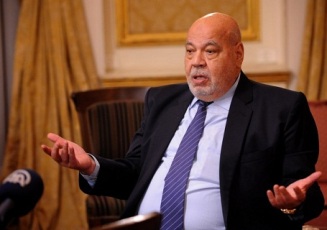Posted on Facebook on February 5, 2013
Earlier today I went to a meeting in the Ministry of Justice to discuss a new draft law for freedom of information. I had spent the past two days studying the bill, and even though I thought it was a bad bill, falling far short of what I think we deserve in Egypt after our revolution. I did my homework and went with an open mind expecting to push for more openness. I met with my friends Nagla Rizk, Hossam Bahgat and Amr Gharbeia in the meeting hall and were all looking forward to a fruitful discussion. However, we were all surprised to see Ahmed Mekki, the Minister of Justice, presiding over the meeting. He spoke for an hour on subjects completely unrelated to what we came to discuss. What he said was an affront to decency, justice and the rule of law. He went on for ten minutes praising the new draft law controlling demonstrations, claiming that it had been reviewed by Human Rights Watch. He then went on for another ten minutes lambasting the media, and accusing all involved of being liars and for deliberately twisting facts. To top it all, he then denied that there was any systematic torture in Egypt under President Morsy. And he finished his hour long diatribe by accusing those who call for security sector reform for wanting the downfall of the police and the judiciary. When he finished, Dr. Hoda Elsadda very politely but firmly told him that she rejected his accusation that those who call from police reform and for an end to torture are incited by corrupt media. More importantly, she told him that she could not accept his denial of torture and that our revolution had erupted to end this horrific practice in the first place. He tried to answer, but then Hossam gave him a piece of his mind, reminding him that before he was appointed minister, he used to phone Hossam and congratulate him on any media appearance, and that, effectively, he changed his position when he became minister. Hossam also reminded him of documented cases of torture that Hossam had personally handed him about which he did nothing. Then it was my turn to tell him that I refused his argument that the police could be reformed from within, and that calling for reform from outside does not mean that we want the downfall of the police. I ended by asking rhetorically if he really believed that the Egyptian police with blood on their hands can have the will or the capacity to reform themselves. All four of us, Nagla, Hossam, Amr and I , then stormed out of the meeting in protest.
